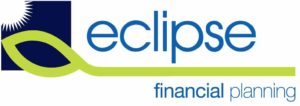Buying a home can be a richly rewarding experience, particularly in the Whitsunday Shire. In fact, no matter their scenario, Australians are embracing property ownership with gusto.
Research from the Australian Bankers’ Association show that housing-related borrowings have jumped 7.3 per cent on 2014, with the total figure sitting at a staggering $1.5 trillion. But where do you start? Applying for a home loan pre-approval is generally the first step towards your goal. This ensures you’ve selected the right lender and loan and know how much you can borrow, so you can negotiate with confidence.
There is an array of tips you can take on board to make sure the process goes off without a hitch and having all the right documentation in order is just one of these. The paperwork will depend on the type of loan you’re interested in, the stipulations of the lender, as well as the category of borrower you fall under. Here are some guidelines to start you off.
Owner occupier
If you fit the mould of a conventional borrower, the paperwork you’ll need to provide can be relatively straightforward. Along with personal identification documents, most borrowers will need to show pay slips – generally two consecutive – that reflect your regular income. If you don’t have these on hand, tax returns, your employment contract or evidence from your employer that outlines details of your job and income can each be looked at.
It’s a good idea to provide bank statements that show a regular amount being deposited into your bank account, as well.

Self-employed
When you’re a self-employed individual, contract worker or freelancer, the selection of documents needed for a mortgage can be a little different, but no less important.
Of course, you’ll need to prove your identity, but in lieu of pay slips, business expenditure statements, a registered Australian Business Number (ABN) or assessment notices from the Australian Taxation Office can be taken into account. You may also need personal and business income tax statements, or a recent employment contract.
Property investor
Lenders generally have a few requirements for investment home loans that you’ll need to keep in mind, particularly for rental properties. If you’ve already got a tenanted property, you might need to show a copy of the lease agreement, rent receipts or financial statements that reflect these payments.
And if this is your first property? The paperwork is even simpler – it’s a matter of obtaining a letter from your agent that sets out what rent you expect to receive.
Most lenders require these documents to cover a certain timeframe, so make sure to check with your mortgage broker about the particular requirements. Once you’ve got all the paperwork in order, you’ll be able to head into the application process with confidence – and ideally come out the other side with everything you want!

